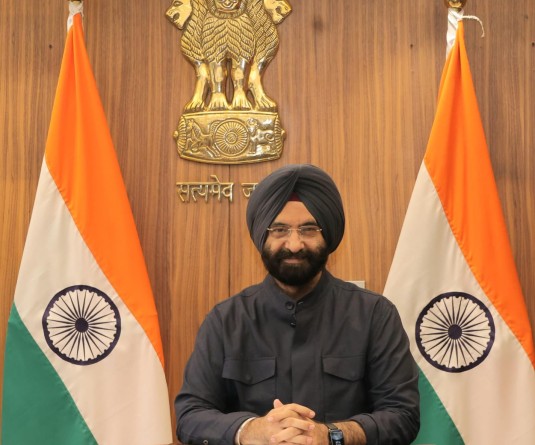IANS Photo

New Delhi, September 25 (IANS): Kangana Ranaut, the actor-turned-politician and Lok Sabha MP, has once again found herself at the centre of controversy with her recent remark calling for the return of the now-repealed farm laws.
This latest incident highlights a pattern of provocative statements that raise important questions about her intentions and the broader political implications.
Is Kangana’s behaviour a mere coincidence, or is it part of a calculated strategy?
Kangana’s “bring back farm laws” remarks, made during a press interaction, drew immediate backlash, particularly from her own party, the BJP.
The party swiftly distanced itself from her remarks, emphasising that they do not reflect the party's stance. This incident is particularly sensitive given the upcoming elections in Haryana, where the farming community holds significant electoral power.
The BJP's quick response suggests a desire to manage the narrative surrounding the contentious farm laws, which have already proven detrimental to the party's image.
Kangana issued a public apology, stating, "I take my words back." This backtracking indicates not only the pressure she faced from her party but also reflects the high stakes involved in addressing issues related to farmers, especially in a politically charged environment.
Kangana’s history of controversial statements indicates a recurring theme of provocative remarks aimed at drawing attention and igniting debate.
From her critiques of international figures like Rihanna and Greta Thunberg during the farmers' protests to her dismissal of Rahul Gandhi's heritage, Kangana's comments often serve to polarise opinions and spotlight her persona.
This pattern raises the question of whether these statements are spontaneous outbursts or part of a broader strategy to position herself and her party within the political landscape.
Kangana also suggested that foreign influences, such as the U.S. and China, were involved in instigating unrest during the farmers' protests, further complicating the narrative. Such claims not only enhance her visibility but also appeal to nationalist sentiments, which are a cornerstone of the BJP's ideology.
At the same time, however, the BJP finds itself in a precarious position regarding Kangana's remarks. While her celebrity status and willingness to engage in controversial topics can energise a segment of the party's base, her comments also pose risks. The party has to balance its messaging, especially when addressing sensitive topics like agriculture and farmers' rights.
By distancing itself from Kangana’s statements, the BJP attempts to maintain a moderate image and avoid exacerbating tensions with the farming community, which has been vocal in its opposition to the farm laws.
The timing of Kangana's controversial statements often coincides with significant political events or debates, suggesting a level of calculation behind her remarks. It is plausible that she aims to gauge public sentiment or to rally support around issues that resonate with nationalist themes. This aligns with the BJP's strategy of consolidating its core voter base, particularly in times of political uncertainty.
However, it is equally important to consider Kangana's personal motivations. Her assertive personality and the media attention she garners can be seen as a means of reinforcing her brand as a fearless advocate for certain narratives.
Observers believe that this duality - being both a vocal leader of BJP and a self-styled rebel - may lead her to make statements that are “less about party line” and more about “personal conviction”.






